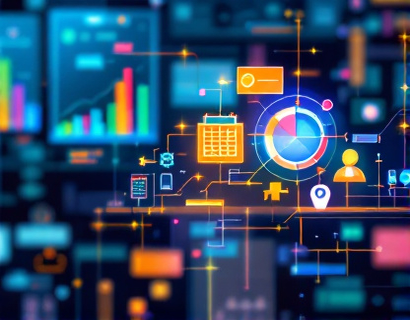AI-Powered Mental Health Insights: Transforming Access to Psychiatric Services
The integration of artificial intelligence in mental health services has opened new avenues for providing specialized insights and support to a diverse audience. This article delves into the capabilities and benefits of an AI-powered chatbot designed to deliver accurate and safe information about psychiatric services and the mental health industry. The focus is on ensuring that content is suitable for various user groups, including children, students, educators, and healthcare professionals, fostering confident and responsible engagement with mental health topics.
Understanding the Need for Specialized Mental Health Information
Mental health is a critical aspect of overall well-being, yet it remains a topic shrouded in stigma and misunderstanding. The demand for reliable, accessible, and accurate information about mental health services is growing. Traditional methods of disseminating this information often fall short, especially when it comes to reaching a broad and diverse audience. An AI-powered chatbot addresses these gaps by providing real-time, personalized insights into psychiatric services and the mental health industry.
Key Features of the AI-Powered Chatbot
The chatbot is equipped with advanced natural language processing (NLP) capabilities, enabling it to understand and respond to user queries in a conversational manner. This technology ensures that users receive information tailored to their specific needs and levels of understanding. Key features include:
- Content Verification: Ensures all information provided is accurate and up-to-date, sourced from reputable databases and peer-reviewed journals.
- Customizable Content: Adjusts the complexity of information based on the user's profile, whether they are a child, student, educator, or healthcare professional.
- Comprehensive Coverage: Covers a wide range of topics from basic mental health awareness to detailed insights into psychiatric services and treatment options.
- Interactive Learning: Provides interactive elements such as quizzes and guided discussions to enhance user engagement and understanding.
Ensuring Safety and Accuracy for All Users
One of the primary concerns when providing mental health information is ensuring that the content is safe and accurate, especially for younger users. The chatbot incorporates several measures to address this:
First, all content is rigorously reviewed by mental health professionals to guarantee its accuracy and relevance. Second, the chatbot uses age-appropriate language and examples to explain complex concepts, making the information accessible to children and students without compromising on depth. For instance, when explaining depression to a child, the chatbot might use simple analogies and relatable scenarios to convey the message.
Additionally, the chatbot includes safeguards to prevent the dissemination of harmful or misleading information. It is programmed to recognize and respond appropriately to sensitive topics, redirecting users to more detailed resources or professional help when necessary. This multi-layered approach ensures that users, regardless of their background, receive reliable and safe information.
Supporting Diverse User Groups
The chatbot is designed to cater to a wide range of users, each with unique information needs:
Children and Students
For younger audiences, the chatbot provides foundational knowledge about mental health in a friendly and engaging manner. It uses stories, games, and interactive activities to teach about emotions, stress management, and the importance of seeking help. For example, a child asking about anxiety might receive a response that includes a story about a character learning to manage their worries through deep breathing and talking to a trusted adult.
Educators
Educators can access detailed resources and lesson plans to integrate mental health education into their curricula. The chatbot offers guidance on how to discuss sensitive topics in the classroom, recognize signs of mental health issues in students, and provide appropriate support. It also provides statistics and research findings to help educators understand the prevalence and impact of mental health issues among students.
Healthcare Professionals
Healthcare professionals benefit from the chatbot's comprehensive database of psychiatric services, treatment options, and the latest research in mental health. The chatbot can provide insights into best practices, case studies, and emerging trends in the field. For instance, a psychiatrist seeking information on a new therapy technique can receive a detailed overview, including clinical trial results and expert opinions.
Mental Health Enthusiasts and the General Public
For individuals interested in mental health but not necessarily professionals, the chatbot offers a balanced mix of general information and deeper insights. It covers topics such as mental health myths, self-care strategies, and how to find and choose a therapist. The chatbot also provides links to community resources and support groups, encouraging users to engage with mental health topics in a supportive environment.
Promoting Confident and Responsible Engagement
The chatbot plays a crucial role in promoting confident and responsible engagement with mental health topics. By providing accurate and reliable information, it helps dispel myths and reduce stigma. Users are encouraged to verify information through credible sources and seek professional help when needed. The chatbot also includes resources on how to recognize and respond to mental health crises, empowering users to act responsibly.
Moreover, the chatbot fosters a community of learners and supporters. Users can share their experiences, ask questions, and provide feedback, creating a collaborative space for mental health awareness and support. This community aspect is particularly beneficial for those who may feel isolated or hesitant to seek help in person.
Technological Innovations in Mental Health
The integration of AI in mental health services represents a significant technological advancement. AI chatbots like the one described can process vast amounts of data quickly, providing users with timely and relevant information. This efficiency is especially valuable in a field where timely intervention can make a critical difference. Additionally, AI can analyze user interactions to identify trends and areas where more resources are needed, helping to inform policy and service development.
However, it is essential to recognize the limitations of AI in mental health. While chatbots can provide valuable support and information, they should not replace professional mental health services. The chatbot is designed to complement traditional care by offering preliminary information and guidance, directing users to professional help when necessary.
Future Prospects and Challenges
The future of AI in mental health is promising, with ongoing research and development aimed at enhancing the capabilities of chatbots and other AI tools. Potential advancements include more sophisticated emotional recognition, personalized therapy recommendations, and integration with wearable devices to monitor mental health in real-time. These innovations could further bridge the gap between technology and mental health care, making support more accessible and effective.
Despite these advancements, challenges remain. Ensuring user privacy and data security is paramount, as mental health information is highly sensitive. Additionally, there is a need for continuous monitoring and updating of the chatbot's knowledge base to keep pace with the evolving field of mental health. Collaboration between technologists, mental health professionals, and policymakers will be crucial in addressing these challenges and maximizing the benefits of AI in mental health care.
Conclusion
The AI-powered chatbot represents a significant step forward in providing specialized insights into psychiatric services and the mental health industry. By ensuring content accuracy and safety, it empowers a diverse audience to engage with mental health topics confidently and responsibly. As technology continues to evolve, the potential for AI to transform mental health care is immense, offering hope and support to those in need.











































